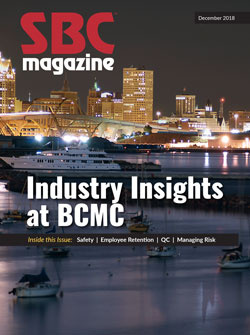Stop Owning Your Trusses!
Stop Owning Your Trusses!
It is reasonable for component manufacturers (CMs) to expect to get paid for the hard work they do and the quality structural components they produce. That is why many CMs, either intentionally or through oversight, include some sort of provision in their customer contracts that states, in general terms, that they retain ownership of their products until they are paid for them.
From one point of view, this makes complete sense. In a world where “pay when paid” and “pay if paid” clauses are standard practice for subcontractors, holding title or ownership on your product can appear to be a prudent business decision.
However, SBCA legal counsel Kent Pagel suggests that from a legal risk standpoint, retaining ownership may actually be detrimental. Kent recommends CMs write into their customer contracts that title to the components actually passes to the customer or contractor at the time of delivery. “Given all the opportunities for your products to be stored improperly, mishandled, and/or used during installation that are completely out of your control, it seems prudent for a manufacturer to have no legal responsibility for those products after delivery.”
In addition to passing over title, Kent recommends CMs include a provision that obligates the customer or contractor to inspect the product within a set number of days after delivery and notify the CM of anything that doesn’t conform to the design. The provision should also state the CM has the right to repair, design a repair, or replace any non-conforming product. That said, Kent made clear that the provision should limit the scope of the repair and replacement to the product itself and should not include any other costs the customer or building owner may incur related to the non-conforming product.
“This all gets back to a CM’s scope of work. The CM should be responsible for manufacturing and delivering the product called for in the building design. They should also have the right to repair it in a timely manner before the product is enclosed. At the same time, they shouldn’t be responsible for what others do with their product once it’s delivered or have to bear the costs associated with other parties’ potential negligence,” Kent says.

